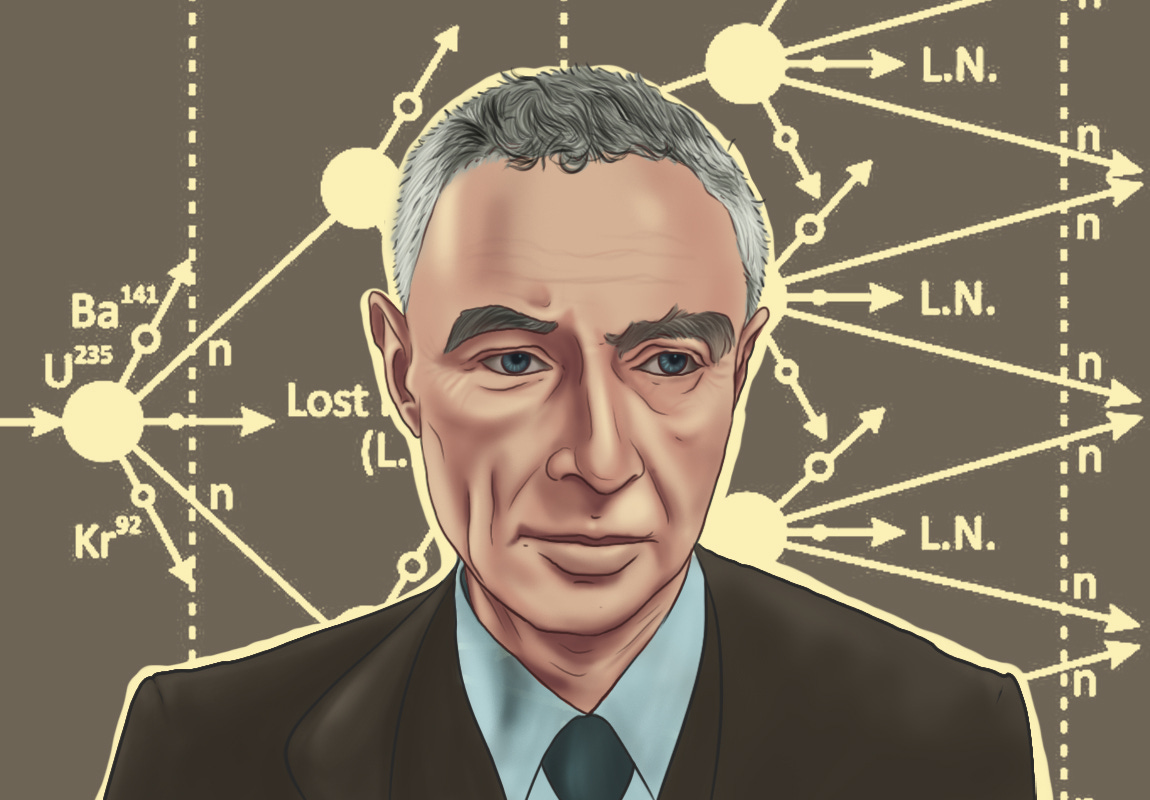J. Robert Oppenheimer was an American theoretical physicist, often known as the ‘father of the atomic bomb’. During the Manhattan Project, Oppenheimer was the director of Los Alamos Laboratory. He was responsible for the research and design of the atomic bomb.
Robert Oppenheimer was born on April 22, 1904, in New York as the son of a wealthy German-Jewish couple, Julius S. Oppenheimer and Ella Friedman. His father, Julius Oppenheimer, made a fortune by importing textiles to New York City. His mother, Ella Friedman, was an artist of Jewish descent. Oppenheimer’s family was a part of the Ethical Cultural Society led by Dr Felix Adler. The Ethical Cultural Society was an outgrowth of American Reform Judaism.
Oppenheimer started his schooling at the Ethical Cultural Society School in 1911. He excelled in academics, and, by the age of 10, he was studying minerals, physics and chemistry. He passed his high school as valedictorian in 1921. He fell ill shortly after a near-fatal case of dysentery. He was bedridden for months and had to postpone enrolling at Harvard University.
At the University of Göttingen, Oppenheimer had the opportunity to interact with prominent physicists like Niels Bohr and P.A.M. Dirac.
Eventually, Oppenheimer enrolled at Harvard University in 1922. During his time at Harvard University, he excelled in Latin, Greek, Physics and Chemistry, published poetry and studied Eastern Philosophy. After graduating in 1925, he went to England to do research at the Cavendish Laboratory at Cambridge University under J.J. Thomson, physicist and winner of the Nobel Prize in Physics.
During his stint at the Cavendish Laboratory, Oppenheimer realised that his talents were for theoretical, not experimental physics, so he accepted the invitation of Max Born, director of the Institute of Theoretical Physics at the University of Göttingen in Germany.
Oppenheimer is often considered as the founding father of the American school of theoretical physics.
At the University of Göttingen, Oppenheimer had the opportunity to interact with prominent physicists like Niels Bohr and P.A.M. Dirac. Oppenheimer obtained his Doctorate in 1927 at the age of 22. During this time, he published many significant contributions to the quantum theory. Most notable of his contributions was a paper on the Born-Oppenheimer Approximation, which separates nuclear motion from electronic motion in the mathematical treatment of molecules. After that, he returned to the United States and accepted professorships at the University of California, Berkeley, and the California Institute of Technology.
Oppenheimer is often considered as the founding father of the American school of theoretical physics. In the 1930s, he did important research in astrophysics, nuclear physics, spectroscopy, and quantum field theory. His contributions to the theory of Cosmic Ray Showers eventually led to the descriptions of quantum tunnelling. He was also the first to write papers suggesting the existence of black holes.
In 1940, Oppenheimer married Katherine Peuning Harrison, and the couple had their first child in 1941. When World War II started, Oppenheimer was involved in the efforts to develop an atomic bomb. In June 1942, General Leslie Groves appointed him as the scientific director of the Manhattan Project.
Los Alamos Laboratory was set up under the guidance of Oppenheimer for research on the atomic bomb. Oppenheimer brought the best minds in physics to Los Alamos to work on the project. He managed over 3,000 people while tackling theoretical problems. The hard work of the scientists at Los Alamos Laboratory led to the first nuclear explosion at Alamogordo on July 16, 1945. Oppenheimer named the event ‘Trinity’.
After World War II, Oppenheimer served as chairman of the General Advisory Committee to the Atomic Energy Commission from 1947 to 1952. During this period, he strongly opposed the creation of the hydrogen bomb.
In December 1953, Oppenheimer was accused of having communist sympathies, and his security clearance was taken away. The scientific community, barring a few, were outraged at this. Oppenheimer was declared not guilty of treason, but the security hearing declared that he could not have access to military secrets. It resulted in the cancellation of his contract as an advisor to the Atomic Energy Commission.
In 1963, to redress the injustices meted out to Oppenheimer, United States President Lyndon B. Johnson honoured him with the Atomic Energy Commission’s Enrico Fermi Award. Oppenheimer also served as director of Princeton’s Institute for Advanced Study from 1947 to 1966.
J. Robert Oppenheimer passed away on February 18, 1967.
Thank you for listening. Subscribe to The Scando Review on thescandoreview.com.
Happy Teaching!














Robert Oppenheimer: ‘Father of the atomic bomb’